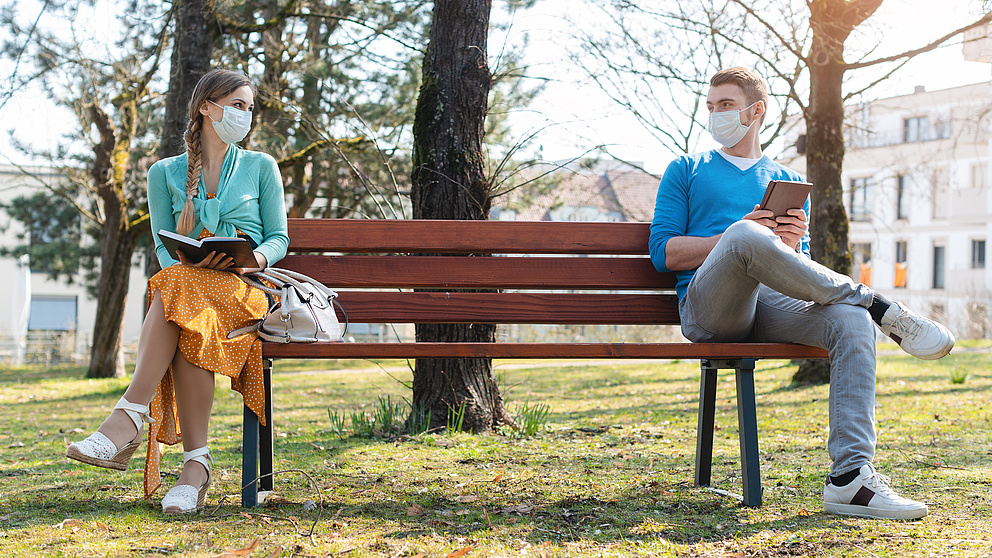

Contact
Press, Communications and Marketing
Tel.: +49 228 833-144
Fax: +49 228 833-441
presse[at]avh.de
Humboldt Foundation: Ms. Hoeffler, you summarised the results of your global questionnaire in six key findings. What hat you expected and what surprised you?
Anke Hoeffler: I actually did expect that the crisis would be more stressful for women. Unfortunately, in many households, women still shoulder the lion’s share of child care and housework. School and work had to be coordinated at home during the pandemic. That was very stressful! Sadly, the increase in nationalism among Americans that we observed didn’t surprise me either. In my opinion, the first persons who should be vaccinated as soon as a vaccine is available are all those individuals who work in the health care system.
The study also shows that young people are actually not the super-spreaders they’re currently being portrayed as in the German media!
As a matter of fact, the results regarding young people did surprise me: Young people apparently fully understand the measures aimed at containing the pandemic and are changing their behaviour accordingly. They are taking precautionary measures such as wearing masks, washing their hands and greatly limiting the amount of contact they have with others.
Although young people understandably are less afraid of coming down with covid-19, they feel more stress than older people. In light of this, we have to do more for young people. We have to take their concerns and difficulties seriously and shouldn’t condemn their behaviour so much because – as our findings show – only a minority breaks the rules.
So, there’s not that much difference between countries in the way people are dealing with the pandemic? What role do mental attitude, age and social class play?
To date, we have received nearly 12,000 responses from more than 130 countries. The responses differ based on age and gender, but much less so when income or nationality are considered – with only a few exceptions, such as the USA. That is an interesting finding. The pandemic affects us all and although it imposes different restrictions on us, we are ultimately very similar in how we respond to this global challenge. This reinforces my worldview that we have a shared humanity.

Anke Hoeffler
is a Humboldt Professor at the University of Konstanz and one of the most frequently-cited social scientists in the world. She is an economist and political scientist, her research focuses on violence, conflict and civil wars as well as their economic consequences.
How do you explain the fact that the USA is the only country where respondents want to have a vaccine made available to them first, with priority given to them over other countries?
The resurgence of America First sentiments and slogans like “make America great again” influence the way Americans think. In today’s heated political climate, at first glance it would seem to be perfectly justified to want to look out for oneself first. This is, of course, a major fallacy. We are dealing with a pandemic. This means we have to combat this disease globally.
How are trends in the number of deaths related to people’s behaviour?
According to Johns Hopkins University, the USA has the greatest number of deaths worldwide (more than 200,000 as of 1 October 2020). This of course fuels a lot fear which perhaps makes people’s desire to have a vaccine in their own country more understandable.
In global terms we observed that general support for measures to contain the pandemic is high but falls off as soon as the number of deaths peaks and begins to decline. This also applies to Germany where the number of deaths peaked relatively early. So, the decline in the level of support for measures is not due to pandemic fatigue but rather is linked to the number of deaths.
Is it possible to tell from your findings what the risks will be when dealing with the pandemic in the coming months?
The only measures for containing the pandemic that are currently available to us are measures aimed at changing behaviour. The declining support for these rules – that we also observed – will make it hard for governments to flatten the curve during the second wave. In other words, the greatest risk right now is the waning willingness among the public to follow the rules.
